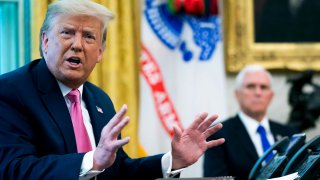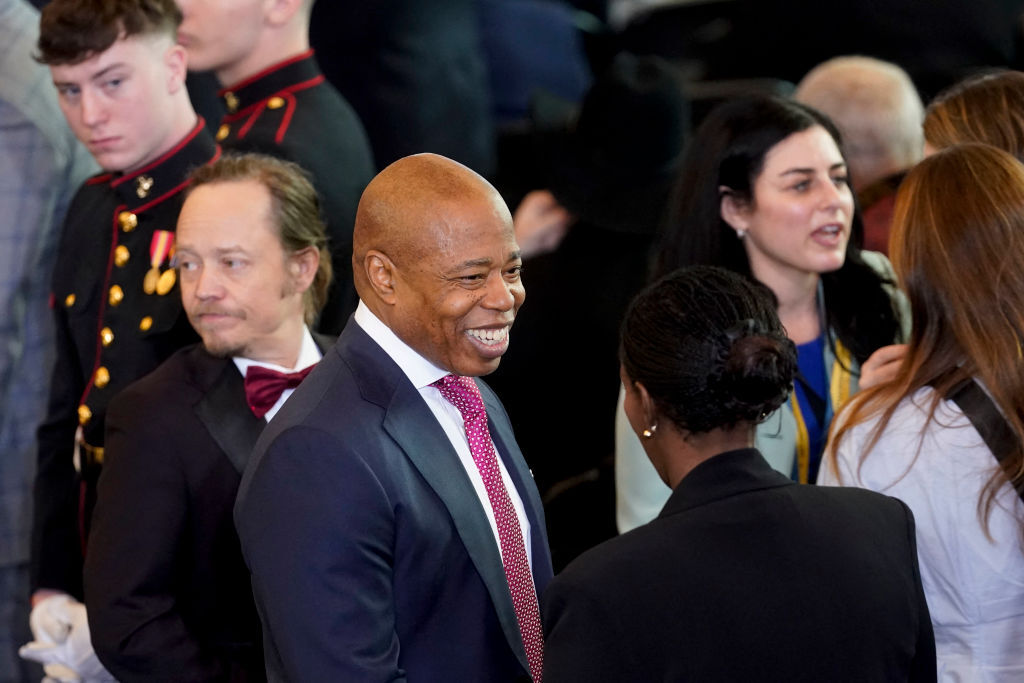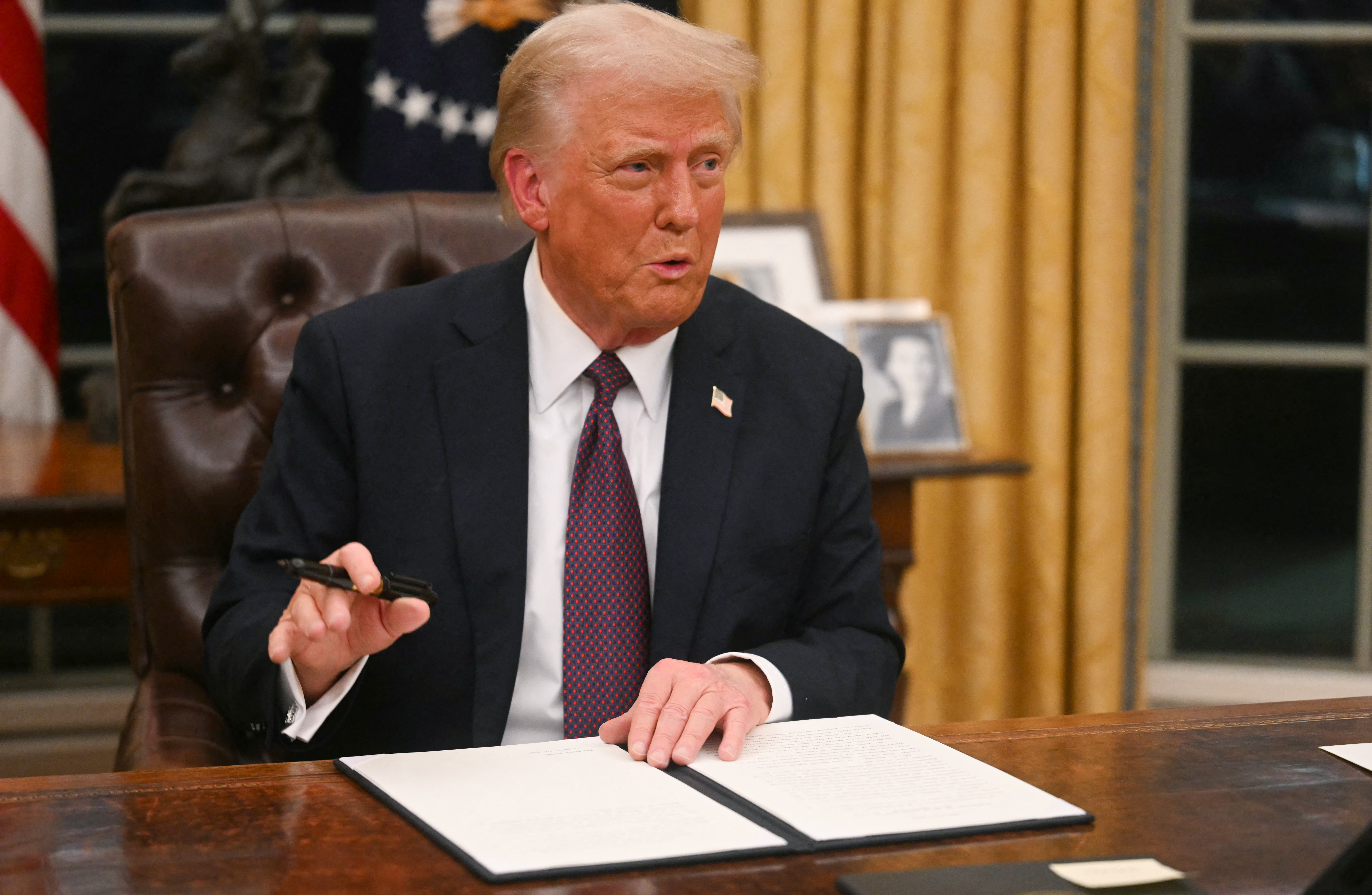
We no longer hold these truths to be self-evident:
—A U.S. presidential election will be held every four years in November.
—The armed forces will not be involved in those elections.
—Nor in domestic protests.
Get Tri-state area news delivered to your inbox. Sign up for NBC New York's News Headlines newsletter.
—Medicine will be approved when science says it's safe and effective, not because a politician wants it approved before Election Day.
—The United States is an example to the world in managing a peaceful transfer of power.
—You'll get your checks, bills, letters, junk mail — and ballots — on time in your mailbox. Because: “Neither snow nor rain nor heat nor gloom of night stays these couriers from the swift completion of their appointed rounds.”
Local
That unofficial post office creed is carved in granite. The other verities of American democracy and public service might as well be. But that doesn't make them eternal.
They've been thrown into doubt, some outright shattered, in President Donald Trump's America, where truths once too obvious to state now have to be.
It's a country where even the cold hard fact of more than 189,000 coronavirus deaths is viewed with suspicion by people who listen to conspiracy theories and bad science. Where common purpose is sidelined in tribal argument between the masked and unmasked. And where the president cries election foul and fraud before a vote is cast.
Trump goes where other presidents have not, stomping on mores, blurring lines and — as Washington-speak has it — saying the quiet part out loud. Supporters relish that. Opponents can't abide it. No one can get away from it.
He says that a COVID-19 vaccine and treatments will help get him reelected, then claims repeatedly that such medicine is “on the way." His desire for a pre-election vaccine has his aides parroting his line that one or more vaccines could be ready to land by the end of October, even as they swear that's got nothing to do with politics.
Clearly feeling the Trump heat, the CEOs of nine global drug companies this week joined in a “historic pledge"affirming what might ordinarily be taken for granted.
They vowed to “continue to adhere to high scientific and ethical standards," continue to put the safety and well-being of vaccine recipients first and only submit prospective COVID-19 vaccines for approval or emergency authorization after clinical studies that meet federal standards.
In other words, no shortcuts for political expediency.
As for America's self-image as an exemplar of democracy, the nation may have lost bragging rights about its election management 20 years ago when antiquated machines and a crazy-close presidential vote in Florida produced a Bush v. Gore standoff that went to the Supreme Court. But Democrat Al Gore quickly stood down when the court issued its contentious decision in favor of Republican George W. Bush, and a smooth handover ensued.
Americans now face a question their democracy has rarely had to ask — will the president accept the results if he loses a close or even not-so-close election? Trump won't commit. “I have to see,” he says. "I’m not going to just say yes. I’m not going to say no.”
Trump has said explicitly what others might couch — that he worries the expected pandemic-era surge in voting by mail will hurt him in the election. This, as the Trump loyalist in charge of the Postal Service struggles to assure lawmakers that the post office is up to the task of delivering mailed votes in time.
At one point Trump made the impossible demand that the outcome be known election night. He predicts comprehensive fraud without the evidence to seed such doubts — “the greatest election disaster in history” — and encourages his supporters to vote twice, contrary to the law, if they can't confirm their mail ballot was counted by Election Day.
He floated the outlier idea of holding off on the election, only to have that thought slapped down by the Senate's Republican leader, Mitch McConnell, and other Republicans who normally give him no trouble. Congress would have to change the election date and the message back to Trump was: Forget this one.
Altogether, these forebodings from a sitting president about contested results and chaos have sparked a further question foreign to the modern American experience. Might the armed forces intervene, either to support Trump or — as Democratic rival Joe Biden mused — to pry him from the Oval Office if he loses and won't go?
Summoned to Congresson this matter, Gen. Mark Milley, chairman of the Joint Chiefs of Staff, said military personnel will not participate in conducting an election or resolving a disputed vote. That he even had to give that assurance was a sign of these times.
But it was not the first time Milley had to take a stand on behalf of what he called "an apolitical military that is so deeply rooted in the very essence of our republic.”
In June, Milley publicly rued the day when Trump had him walk behind him, the general in his military fatigues, through Lafayette Square across from the White House in what turned out to be a photo op, inadvertently helping Trump look resolute in the thick of a protest over the death of George Floyd.
Trump calculates that urban unrest and violence will benefit him politically. “The more chaos and anarchy and vandalism and violence reigns, the better it is for the very clear choice on who’s best on public safety and law and order,” said Trump adviser Kellyanne Conway.
In that instance, she said the quiet part out loud for him.
___
EDITOR'S NOTE — Calvin Woodward has covered politics and national affairs for The Associated Press for a quarter-century.



